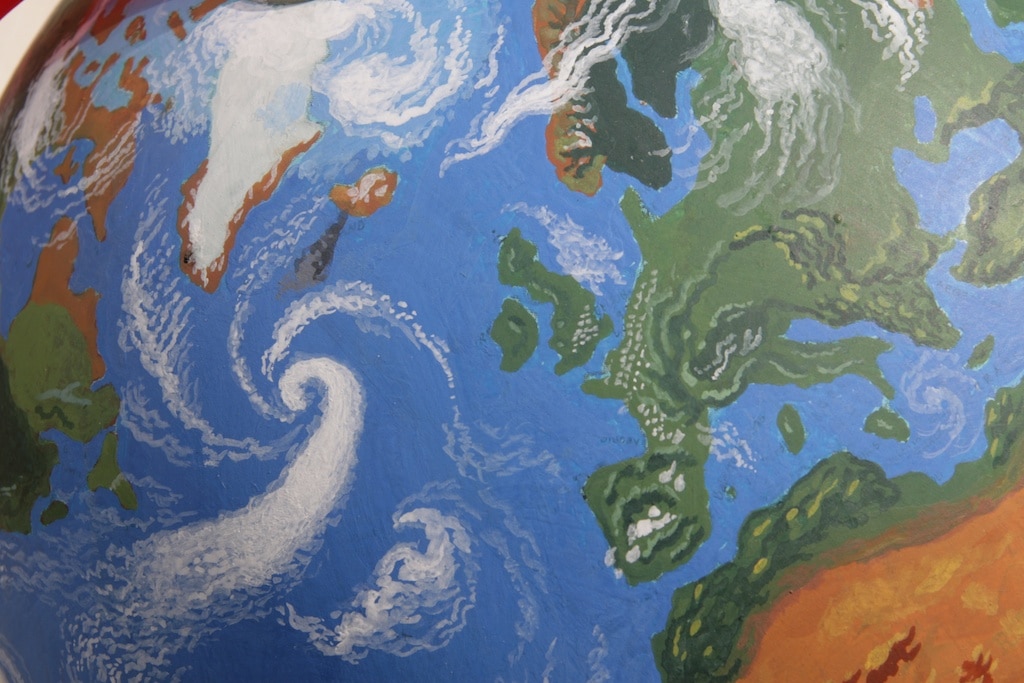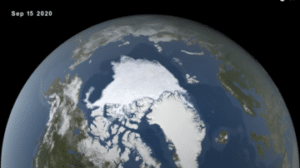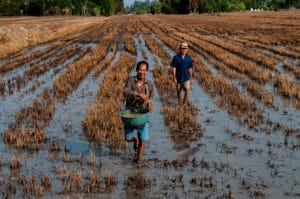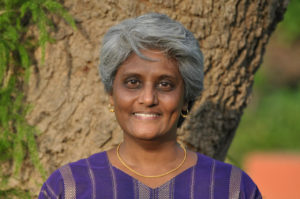
Views of Future Earth – Part I
by Usha Alexander
[This is the eighth in a series of essays, On Climate Truth and Fiction, in which I raise questions about environmental distress, the human experience, and storytelling. It first appeared on 3 Quarks Daily. This eighth essay is divided into four parts. The seventh essay in the series, called “Our Moment on Earth”, is here.]

In the late fifteenth century, European seafarers began searching for what they called the “Northwest Passage,” a fabled route across the Arctic Ocean, which would allow them to sail northward from Europe directly into the Pacific in search of fortune. But the Arctic of their time, during the so-called Little Ice Age of the fourteenth to mid-nineteenth centuries, was covered by thick, impenetrable sheets of ice and densely packed icebergs. Nor had they any reasonable expectation that the great mass of ice would soon melt away. That they imagined finding a reliably navigable route through a polar sea seems to me a case of wishful thinking, a folly upon which scores of lives and fortunes were staked and lost, as so many adventurers attempted crossings, only to flounder and often die upon the ice.
But now that the Arctic sea ice is melting away, the Northwest Passage has become real in a way the adventurers of old could not have dreamed. Today, nations encircling the Arctic Ocean jockey for control of its waters and territorial rights to newly exposed northern continental shelves, which promise to be full of oil and gas. What had been a deadly fantasy is now a luxury cruise destination flaunting an experience of rare wonder, including opportunities to watch polar bears on the hunt. “A journey north of the Arctic Circle is incomplete without observing these powerful beasts in the wild,” entices the Silversea cruises website, with nary a note about the bears’ existence being threatened by the very disintegration of their icy habitat that makes this wondrous cruise possible. Meanwhile, in China, the emergent northern sea routes have been dubbed the Polar Silk Road, projecting a powerful symbol of their past wealth and influence onto an unprecedented reality.

By now, we’re all aware that the planet is profoundly changing around us: angrier weather, retreating glaciers, flaming forests, bleaching coral reefs, starving polar bears, and disappearing bees. Yet how blithely we go on making plans, as though the future will follow as neatly and predictably from today, as today did from yesterday. From buying a new beachside home to booking a cabin in the redwoods a year in advance, the ongoing planetary changes apparently figure little in the plans so many people make. It seems I regularly read articles in which mainstream economists make predictions that entirely disregard the changing climate and collapsing biodiversity, as though these concerns lie beyond our economies. Even governments and corporations who seek to profit from changes like the opening of the Arctic Ocean often presume themselves the drivers of “disruption,” creating new market opportunities in an otherwise stable or predictable world. They don’t seem to recognize that the true nature of what’s upon us might just be greater than they imagine and far more consequential.
Yet the visible changes we already notice in the world are merely harbingers of deeper and more far-reaching changes we don’t yet see – and even changes we might see but don’t pay much attention to. These changes, visible and invisible, will drive further changes; some we might try to predict, but others we won’t – especially those resulting from causes we’re not tracking, including the unknown unknowns.
[End of Part I]
[Views of Future Earth – Part II ]

Usha Alexander was born to Indian immigrants who came to the United States in the 1950s and settled in the very small town of Pocatello, Idaho. She ran away to university at the age of 19, and later joined the US Peace Corps, where she served as a science teacher in the archipelago nation of Vanuatu. In the late 90s, Usha made her way to the San Francisco Bay Area of California, where she settled and worked for Apple Computer for many years.
Since 2013, Usha resides with her partner, writer and photographer, Namit Arora, in the National Capital Region of India. Usha has lived in four different countries and has learned to carry her home within herself, yet she frequently returns to the CA Bay Area with a certain sense of homecoming.